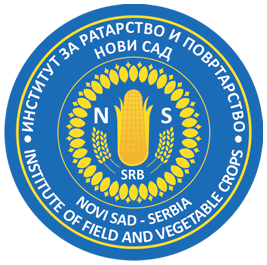Приказ основних података о документу
Reaction of winter oilseed rape varieties to elevated concentrations of lead
Reakcija sorti ozme uljane repice na povećane koncentracije olova
| dc.creator | Oreščanin, Bojana | |
| dc.creator | Miladinović, Dragana | |
| dc.creator | Marjanović-Jeromela, Ana | |
| dc.creator | Pajević, Slobodanka | |
| dc.creator | Borišev, Milan | |
| dc.creator | Nikolić, Nataša | |
| dc.creator | Balalić, Igor | |
| dc.date.accessioned | 2021-04-26T18:55:13Z | |
| dc.date.available | 2021-04-26T18:55:13Z | |
| dc.date.issued | 2012 | |
| dc.identifier.issn | 0534-0012 | |
| dc.identifier.uri | http://fiver.ifvcns.rs/handle/123456789/1081 | |
| dc.description.abstract | Remediation methods allow the removal of metals from contaminated soil, and phytoremediation a technology for cleaning contaminated soil and waste material by plants, is becoming increasingly used. Brassica napus L., as one of the main oilcrops and high-biomass producing species, is becoming more and more interesting for the use in phytoextraction as it is proved to be tolerant to higher concentrations of heavy metals. The aim of this study was to examine the specific responses of three commercial winter rapeseed varieties, Banaćanka, Slavica and Kata, to the increased concentrations of lead in vitro. Significant reduction in root length of plants treated with lead was observed only in the variety Slavica, indicating susceptibility of this variety to the increased concentrations of this heavy metal. As in variety Kata a significant reduction in the length of the above-ground part due to the treatment with lead was detected, it could be concluded that the variety Banaćanka is the most tolerant to the applied concentrations of lead since there were no significant changes in the growth and biomass accumulation in all treatments except one, and could be recommended for further use in phytoremediation studies. | en |
| dc.description.abstract | Metode remedijacije omogućavaju uklanjanje metala iz kontaminiranog zemljišta, a fitoremedijacija, tehnologija za čišćenje kontaminiranog zemljišta i otpadnih materijala uz pomoć biljaka, se sve više koristi u ove svrhe. Brassica napus L., kao jedna od najznačajnijih uljanih biljnih vrsta sa visokom produkcijom biomase, postaje sve više i više zanimljiva za upotrebu u fitoekstrakciji, s obzirom da se pokazala tolerantnom prema višim koncentracijama teških metala. Cilj rada je bio da se ispita reakcija tri komercijalne sorte ozime uljane repice, Banaćanke, Slavice i Kate, na povećane koncentracije olova u in vitro uslovima. Značajno smanjenje dužine korena biljaka tretiranih sa olovom je primećeno samo kod sorte Slavica, što ukazuje na osetljivost ove sorte na povećane koncentracije ovog teškog metala. Kako je kod sorte Kata uočeno značajno smanjenje dužine nadzemnog dela prilikom tretmana sa olovom, može se konstatovati da je sorta Banaćanka najtolerantnija na primenjene koncentracije olova, jer nije bilo značajnih promena u rastu i akumulaciji biomase pri svim tretmanima osim jednog, tako da se ova sorta može se preporučiti za dalju upotrebu u fitoremedijaciji. | sr |
| dc.publisher | Društvo genetičara Srbije, Beograd | |
| dc.relation | info:eu-repo/grantAgreement/MESTD/Technological Development (TD or TR)/31025/RS// | |
| dc.relation | info:eu-repo/grantAgreement/MESTD/Integrated and Interdisciplinary Research (IIR or III)/43007/RS// | |
| dc.rights | openAccess | |
| dc.rights.uri | https://creativecommons.org/licenses/by-nc-nd/4.0/ | |
| dc.source | Genetika-Belgrade | |
| dc.subject | Brassica napus L. | en |
| dc.subject | lead | en |
| dc.subject | tolerance | en |
| dc.subject | phytoremediation | en |
| dc.title | Reaction of winter oilseed rape varieties to elevated concentrations of lead | en |
| dc.title | Reakcija sorti ozme uljane repice na povećane koncentracije olova | sr |
| dc.type | article | |
| dc.rights.license | BY-NC-ND | |
| dc.citation.epage | 519 | |
| dc.citation.issue | 3 | |
| dc.citation.other | 44(3): 513-519 | |
| dc.citation.rank | M23 | |
| dc.citation.spage | 513 | |
| dc.citation.volume | 44 | |
| dc.identifier.doi | 10.2298/GENSR1203513O | |
| dc.identifier.fulltext | http://fiver.ifvcns.rs/bitstream/id/56/1078.pdf | |
| dc.identifier.scopus | 2-s2.0-84873472714 | |
| dc.identifier.wos | 000314459900008 | |
| dc.type.version | publishedVersion |


